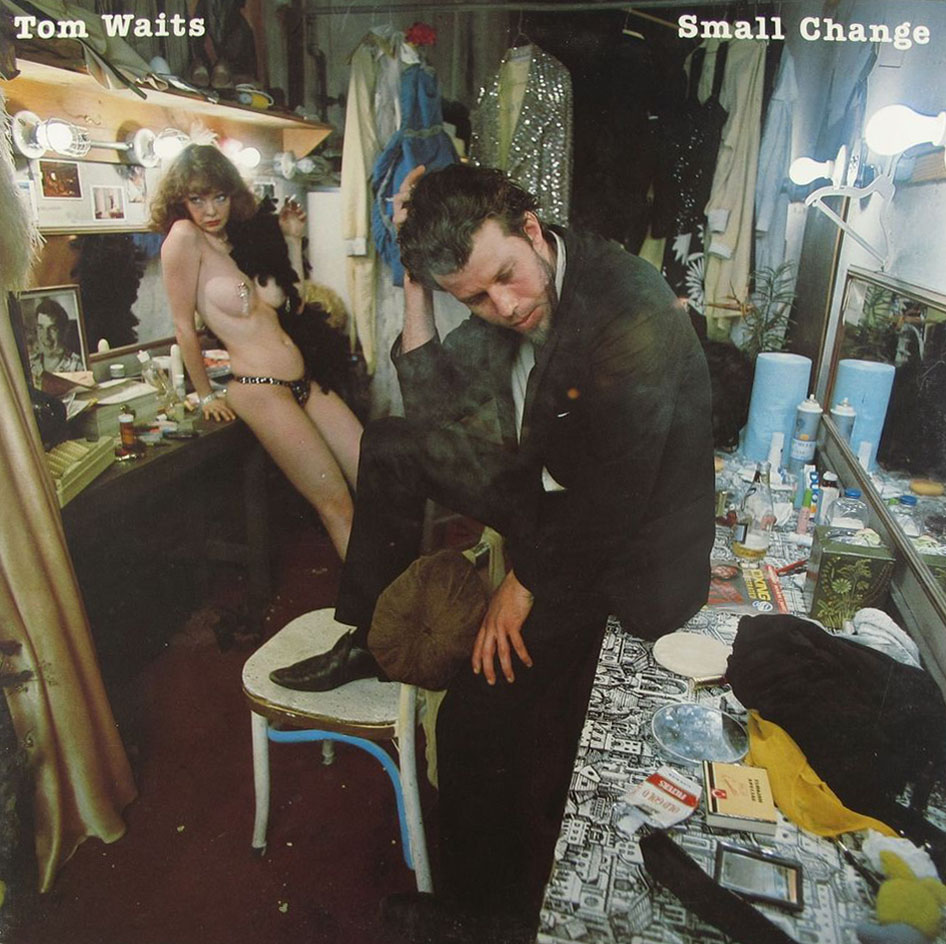

I love everything about this album, even the trashy cover. And on the back there’s a fabulous black and white pic of Waits smoking Lucky Strikes, taken by Bruce Weber (director of the fabulous Chet Baker biopic Let’s Get Lost ), that’s shameful in it’s power to make impressionable youths want to take up smoking. I should know, I fell under the spell.
I’m quite proud to say I’m not amongst those whose favourite-ever Waits song is ‘Tom Traubert’s Blues’. Don’t get me wrong, it’s a good ‘un. I mean, this is Tom Waits after all, and at the very peak of his powers. But I’ve always found it slightly odd that so much hyperbole has been expended on this particular track. Personally I prefer the understated melancholic Tin Pan Alley sophistication of ‘Invitation To The Blues’, or ‘Bad Liver And A Broken Heart’. And those are just tracks I prefer over TTB from this album, it certainly doesn’t make my top ten Waits’ tunes list, it’s not even close.
‘Step Right Up’ and ‘Pasties and a G-String’ are from the more upbeat end of his spoken word raps, both highly entertaining. I love how, in the former, the band are so much into it that one of them lets out a howl at one point. I don’t know this for sure, but I believe it’s probably ace drummer Shelly Manne. Waits must’ve had some kind of mojo-inducing effect on drummers (he certainly does on me, and I’m a drummer!), as he elicited some rare vocal harmonies from John Seiter on Closing Time .
Whilst the quality of tunes isn’t 100% even, as with most Waits albums from this period, it’s nonetheless the combined package that makes the whole so effective. Sure there are standout tracks, but nothing here is mere filler (if some might think tracks like ‘I Wish I Was In New Orleans’, ‘The Piano Has Been Drinking’, or ‘Pastries And A G-String’, could be called filler – outrageous! – then I don’t care, it’d be some of the damned finest filler I ever heard!), and with stories as compelling as ‘The One that Got Away’ and ‘Small Change’, and songs as enchanting as ‘Jitterbug Boy’… It’s just a magical slice of something that seems to exist both outside of time, and yet be very much an elusively will’o’the wisp like vintage moment, long gone by, but captured here for posterity, and our delight.
The quality of lost melancholy yearning that Waits captures so well was a speciality of his hero Kerouac, who was expert at it, right from his first novel, the brilliant The Town and the City , through to more mature and experimental books like the magnificent Doctor Sax . And indeed, Waits nods to his erstwhile mentor in the subtitle to the song ‘Bad Liver And A Broken Heart (In Lowell)’. This is Waits in his quintessential beat mode, and he does it unbelievably well. People are divided about whether he was genuine, or putting it on. Although Waits has said himself you dont have to have killed to write a murder story, nevertheless, I don’t think anyone can really act this well without genuinely becoming the character they have been inhabiting so deeply.
Anyway, in conclusion: sublime and essential.
